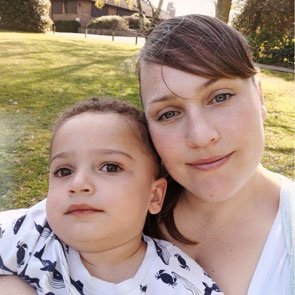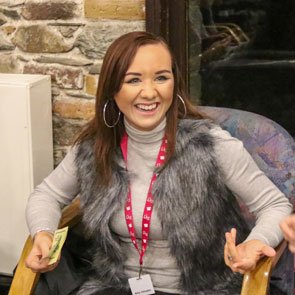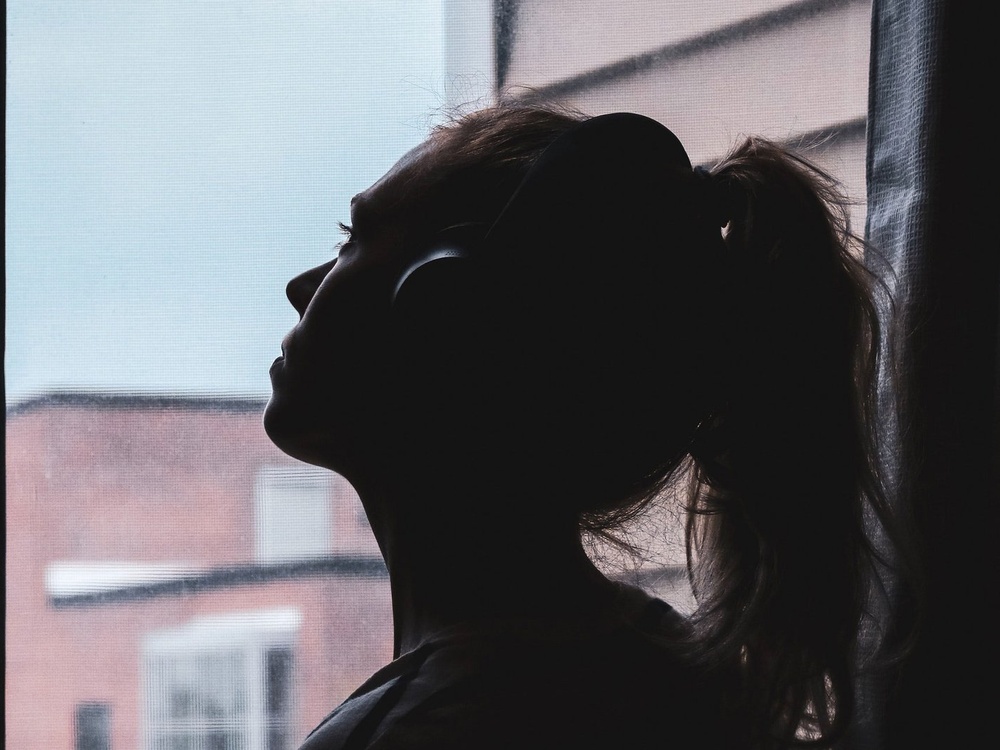Ben Marram
Ben is an independent occupational and clinical psychologist specialising in neurological conditions. He leads the Lily Foundation's mental health initiative for people with mitochondrial diseases, and works with affected patients on a daily basis.
"In my experience, people with mitochondrial diseases have been affected by the pandemic in different ways. I think this latest lockdown has been the toughest, because it's our third episode and has lasted a long time. I think because of this we're seeing increasing cases of isolation fatigue. Even in typical times, people with cognitive or physical difficulties can often feel completely separate to the world, so the pandemic has left them feeling increasingly isolated. There's a lot of time to ruminate and focus on the difficulties of your illness. There can also be added pressure on the relationships with people you live with, which I think is something we can all relate to.
In other situations, the slower pace of society in lockdown has suited some patients. Isolation at home may have been very typical for them pre-COVID and accessing the community may have actually led to anxiety and distress. In that sense, lockdown has helped to reduce the pressure they may feel to engage with society. There's a sense that the world now knows something of what experience daily feelings of isolation, that others might understand more about their experience.
So as we emerge from lockdown and society returns to its normal fast pace, people with cognitive or physical difficulties may be feeling anxious that they won't be able to keep up. Other family members who have kept them company during lockdown will be able to leave the house again and do other things, so there's concern about being left behind. And there's also concern that all the social activities that moved online during the pandemic, such as zoom chats, quizzes and concerts, which have really benefited people with disabilities, will come to an end and leave them feeling excluded again.
As a society, we need to do more to tackle the loneliness that affects individuals on a daily basis, whilst also campaigning to make society a bit of a nicer and more inclusive place. You need that dual-pronged approach. It's about changing the world to make it more inclusive, whilst also continuing to give that vital support to those who are marginalised. It's not enough to say we need to develop empathy, you have to actively make changes in your daily behaviour. Advocating and raising awareness is important of course, but to really help those who are excluded we need to be actively making changes. A good start might be to invite those affected to share how we could make these changes, and to really listen.
I think charities like The Lily Foundation get that balance right in raising awareness on a large scale whilst also thinking of individual needs. We've only just begun to scratch the surface in terms of the type of support that's needed for people with mito. More work needs to be done to look at the cognitive difficulties people with mito struggle with, and the link to mental health and overall wellbeing. We need more family support, more awareness and more clinical guidelines. We need to keep working hard to get mito on the map. It’s excellent to see neurological conditions such as Parkinson’s Disease and Motor Neurone Disease in the public consciousness and there’s no reason why mito shouldn’t be there too. I really hope we can continue to work to raise this important awareness whilst also make real changes to every day wellbeing and care for those affected and their families."
Samantha Josey
Samantha, 32, was diagnosed with mitochondrial disease in 2018 following decades of chronic illness and efforts by doctors to identify the cause. She lives in Carmarthen with her husband, Wes, and worked in a police forensics unit before having to medically retire because of her condition. She is the author of the blog Mito and Me.
"Isolation has definitely been an issue for me during the pandemic. I'm shielding and I suffer from anxiety, and for most of 2020 I was too afraid to see anyone. My parents live nearby so they can help with my care, but I was so frightened that for a long time I would only see them through the window.
We were a bit ahead of the curve with self-isolating. I get a lot of infections because of my condition, and when the pandemic started I was still recovering from pneumonia and sepsis. I'd only just come out of hospital, and the doctors said I'd been close to dying. So when Covid came along, with all the information about lockdown and shielding, we'd already been doing that for quite a few weeks.
My husband has been working from home to protect me, and it's been lovely to have that company as usually I'd be home on my own. I can't go really anywhere without help from him or my parents, because I can't walk very far and need my wheelchair to conserve energy. I have one or two close friends who understand about my condition, and usually they would come and visit and take me somewhere for a change of scenery, but I haven't been able to see them for over a year now. Going to the cinema, having a coffee – all the little things that used to make life a little easier have been taken away.
It's difficult being stuck at home and feeling your disease progress. You become deconditioned because you're not doing things you're normally able to do. I do my physio exercises at home, but you notice your condition gets worse. I worry about what it will be like when life gets back to normal. Will I still be able to go out with my friends, or will my illness have progressed too far for that? Those sorts of worries cause me a lot of anxiety.
I recently had my first Covid vaccine. It went absolutely fine – apart from a slightly sore arm I don't have any side effects. I'm looking forward to my second dose, but I don't quite believe there's going to be a time soon where we won't be wearing a mask and socially distancing. I feel there's light at the end of the tunnel, but it's such a daunting thing to not feel safe.
Not many people know about mitochondrial disease, which is a problem when you need to talk about your condition. The storyline on Coronation Street helped make people aware of how it affects young children, but it's devastating for adults too. It's really a miracle when people with mito make it into adulthood. There are even doctors who have never heard of it. What I've learned is that you end up being the expert in your own disease, and you're explaining to people in the medical profession how it affects you. When I see a cardiologist, a lung specialist or a physiotherapist, often there's a junior doctor present who will listen in, so they can get informed about the disease and complex ways it affects people. And that's fine with me, because the more people who know about it the better the care will be.
Sometimes I feel guilty or embarrassed about my condition. You can't just go down the street and tell people you have mitochondrial disease. To some people you might look like you're drunk, because you're not balancing well. And because I can walk for short distances when I have the energy, I worry that people may think I'm a fraud when they see me in my wheelchair. I wish that I could explain to them what is wrong with me. I feel like people are looking at me, and sometimes I feel embarrassed that my body doesn't do what it's supposed to do, when I'm still only 32 years old.
My husband is great, he's not embarrassed to be with me at all and he's very reassuring. But I feel embarrassed for him, because he's only 33 and he's got a wife that he needs to take care of. The disease has progressed - there was a time when I didn't need to hold on to him to walk, and I didn't need to have a wheelchair for him to push. But he's absolutely fantastic. I can't speak highly enough about him, I hit the jackpot with him that's all I can say.
I started my blog, Mito and Me, to help other people understand what it's like to live with mitochondrial disease, and to remind those who have it that they're not alone. There's support out there, and while we might all have different forms of mito, at the end of the day the community is a family. That's the great thing about The Lily Foundation. We all support each other, we're there for each other."

Emma Gibbs
Emma is mum to Theo, 4, who has a form of mitochondrial disease that affects his physical and neurological health. They live in Hertfordshire with dad Jermain and their baby daughter Nia.
"Theo is affected a lot by isolation from other children his age, especially during the winter. He goes to a special needs nursery, because a standard nursery wouldn't be able to manage his diet and the level of care he needs, or have space for his special seating, stander and other equipment he uses. A lot of the other children at his nursery are either profoundly disabled or moderately to severely autistic.
He gets invited to the birthday parties of our family and friends' children, but unless it's the summer we don't go because they're full of children with viruses, and a bad virus could have serious consequences for Theo. At nursery they are very strict with colds and bugs etc, as there are also other children that are affected by them like Theo, so the risk is much smaller.
Theo has cousins but only gets to see them if they are well, which is quite a rare thing as they almost always have some sort of cold. This means he doesn't really have any friends. It affects his social life but it also affects the rest of the family. We have to always be aware of where we go and who we're in contact with. We worry that his sister might bring something back too, so she doesn't really get to see other children either.
The first week he started back at nursery this September, he picked up a bad cold and couldn't get any words out for a few days, and now he has a permanent stammer as a result. He has a special ketogenic diet to help manage his symptoms, but we found that very hard to control in the aftermath of the cold. His body was producing a lot of sugars to help fight the cold, but in Theo it has the opposite effect.
Sometimes it can be hard to hear how other people talk about the pandemic. Everyone seems to be complaining about the loss of their freedoms, but it just feels like everyday life to us. We are more isolated than ever now, as we're having to work from home, so we're not seeing anyone other than the children's grandparents who are in our support bubble.
There are advantages to working from home during the pandemic. It makes it easier to manage Theo's care, take him to doctor's appointments and the physio. We no longer have to ask for special circumstances, as everyone is in the same boat. "

Amy Johnson
Amy, 27, was diagnosed with Leigh Syndrome, a type of mitochondrial disease, when she was nine years old. She lives in Hertfordshire with her mum, dad and brother, and works part time as a receptionist when her condition allows.
I am naturally a very sociable person, but my condition has affected me a lot and it does isolate me. A few years ago I suffered a lot from depression and anxiety, and couldn't leave the house for a long time. Then I went to university, and for the first time I had friends and was able to do normal things, like go to the cinema or bowling. That was the first time I ever experienced that, it was very exciting for me.
We went into Covid lockdown in March, and I've been shielding pretty much since then. I managed to get out and see friends once or twice between lockdowns, but mostly I've been stuck in the house looking at the same four walls. I've 'finished' Netflix, if that's even possible, and I'm doing an online course. I know that a lot of people have had a tough time shielding, but I feel very lucky to have an amazing family and a busy household. I haven't been bored at all. Also, it has given me time to rest and recover after getting a nasty virus in January 2020.
Even in normal times, I'm not always able to go out when I want to, because I don't have the energy. When friends invite me out, I have to come up with excuses why I can't go. I might say I have a headache, but not tell them the full reasons behind the headache. People don't know how to deal with it, and it's hard to explain without a lot of awkwardness. I just don't want to hear that pity. It's horrible, always having to think how much to reveal to people, how much to hold back.
There's no way of explaining what you have simply, because then you're defined by other people's ideas about the disease. But on the other hand, I don't want to have to explain my condition and my whole life story to everyone I meet. So we come with little lies to explain my symptoms. When I'm shaking, my family just tell people I'm cold, even when it's summer and sweltering hot. And I'm thinking, please don't ask more.
When I do tell people about my condition, what tends to happen is that they look it up on the internet, and then suddenly I'm defined by that. Some things you read about mitochondrial disease online do relate to my experience, but others don't. I've had people go and look it up, and then come back and want to talk about it. They say, "Oh my God, this is a terrible diagnosis," and I'm like, "I know, I've been living with it for 20 years, I'm fine thank you!"
I'm so used to dealing with my condition, I've lived with it since I was nine. I'm used to dealing with the hospital visits and injections, the fatigue, headaches, tremors, all the ways it affects me. But then you get the pity from others, and it makes you see it all a different way. You can feel more like a victim, and wonder if things might be really much worse than you think. So while you learn to deal with it your way, it can be the reactions of others that are difficult.
More public awareness about mitochondrial disease would be amazing, so it's talked about with the same understanding that people talk about cancer, for example. Until then, I'll keep being wise about avoiding certain situations, and focused on what is important for me.
I do have a fear of missing out, because mito makes me miss out on a lot of things. It's hard to be in my 20s, and unable to do all the things that other young people do. I'm learning to be kinder to myself though, and that really helps.
I have had my first Covid vaccine, and I am waiting for my second dose. I have plans for what I would like to do when we are out of lockdown and allowed to have more freedom.



